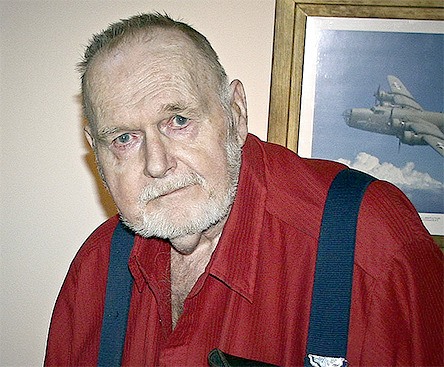In his lifetime, there weren’t many things that the late Harold Erland Sr. didn’t have some connection with in the Upper Valley. Much that he has touched, including his hometown of Cedar Falls, is gone now, but Erland’s life and work have had a lasting impact on many people and places in the North Bend area.
“He was a Scoutmaster when he got back from the service. I don’t know how or why he became a Scoutmaster,” said Harold (Butch) Erland Jr., “but I was really little and I remember him coming home in his Scout uniform. Bill and John Glazier were in his Scout troop, and a lot of people of that age.”
“A lot of kids took hunter safety from him. Both my daughters did… I was in Rifle Club when I was in high school, down in Fall City, and we were the first hunter safety class in the state,” Erland continued.
His father and mother were also involved in the creation of the food bank that, under various names, has operated out of the North Bend Community Church for decades.
Erland recalled some of the specifics of that project in the ‘70s, although he was no longer living at home. Some of their friends had proposed the idea at their church, he said, but hadn’t gotten permission to try it.
“So my Mom said maybe we could do it out of our church.”
At first, the food bank was just a group of people who brought groceries — including supplies from the two freezers the Erlands kept stocked in their garage — to the church one day a week and passed them out the side window to people in need. It has since grown into the Snoqualmie Valley Food Bank, serving about 300 families each week with distributions on Wednesdays, plus a seniors-only distribution on Mondays.
Erland’s father was a life member of the Sallal Grange and, when he received the Chief Seattle Council’s Silver Beaver Award for service to scouting in 1964, he was only the sixth person in the Snoqualmie Valley to receive the honor.
His most lasting legacy, though, is probably in people — his own four sons, Harold, Carl, Friz and John, and their sister Tresa, and the many foster children he and his wife, Helen, took in over the years.
“They raised more than 65 foster children,” said Erland, “one of which is my sister… she came when she was 6 years old and grew up with us — I was in high school so I was only with them for a couple of years. She stayed until she graduated from the University of Washington. Until she got married, actually. We consider her our sister. People probably think that’s strange, because she’s a Native American,” he laughed, “but oh well.”
Erland said both his parents grew up in the habit of helping people, recalling stories of his mother’s mother who, when the family operated a chicken farm, hosted a free fried-chicken dinner every Sunday after the Depression for people displaced by the financial crash.
Other elements of his father’s tale are sadly, long gone, including the the two-room schoolhouse at Cedar Falls, complete with a swimming pool, where he started his education, the Weyerhaeuser mill where he worked and the railroad lines, where Erland Sr. spent the summers as a gandy-dancer, laying rails for the new tracks.
“He was a big guy, a football and track star in high school, and he could have played college,” said Erland, adding that some of his father’s football opponents admitted “they were afraid to tackle him.”
His size probably helped him with his first career out of high school, too. Erland doesn’t know why his father lied to the military in June, 1929, exactly, but there’s a note of pride in his voice when he tells the story.
“He lied about his age to get into the Army, by a month,” said Erland. “He was 17, joined the Army Air Corps, then turned 18.”
Erland Sr. was quickly taken far from home in the Air Corps. One of his first posts was at Hickam Field in Hawaii, where he witnessed the Dec. 7, 1941, attack on Pearl Harbor. Years ago, he recounted the story to the Valley Record, saying that during the bombing, he tried to hide in a latrine, but that didn’t work out so well.
Following Pearl Harbor, Erland flew bomber planes, serving as a crew chief in the South Pacific. He was discharged in 1945 and returned to the Valley, saying “I haven’t found any place better than this one.”
A memorial service is planned for 10 a.m. Friday, Dec. 11, at North Bend Community Church, 122 E Third St., North Bend.

Harold and Helen Erland, photographed in May, 1943.

Harold Erland Sr., pictured at Hickam Field in Hawaii.


